Emotional well-being is a vital component of leading a fulfilling life, especially for individuals who rely on mobility aids. While physical challenges can sometimes feel overwhelming, there are creative strategies that can uplift the spirit and enhance mental health. Imagine discovering new avenues that not only support emotional wellness but also foster joy and connection in your daily routine. From seeking professional guidance to embracing nature’s beauty, these approaches offer unique paths toward greater happiness and resilience. Let’s explore how you can nurture your emotional well-being with innovative techniques tailored just for you.
Professional Counseling

Counseling for disabled patients that rely on mobility aid can be helpful for a variety of reasons. A trained therapist understands the unique challenges faced by individuals with physical limitations and provides personalized support. Engaging in therapy allows for space to unpack feelings and experiences that may seem daunting. It opens avenues for self-discovery, helping you recognize patterns and develop coping strategies tailored to your lifestyle. Counselors often utilize various techniques, from cognitive-behavioral approaches to art therapy. These methods encourage expression in ways that resonate personally. Furthermore, finding a supportive community through group therapy can foster connection.
Mindfulness and Meditation
 Mindfulness and meditation can be transformative for mobility aid users. These practices encourage a deeper connection with oneself, fostering emotional resilience. Setting aside just a few minutes each day to focus on breath or body sensations creates a calming effect. It helps in reducing anxiety and stress levels significantly. The beauty of mindfulness is that it requires no special equipment or location—just you and your thoughts. Many apps offer guided meditations tailored to various needs, making them accessible for everyone.
Mindfulness and meditation can be transformative for mobility aid users. These practices encourage a deeper connection with oneself, fostering emotional resilience. Setting aside just a few minutes each day to focus on breath or body sensations creates a calming effect. It helps in reducing anxiety and stress levels significantly. The beauty of mindfulness is that it requires no special equipment or location—just you and your thoughts. Many apps offer guided meditations tailored to various needs, making them accessible for everyone.
Adaptive Fitness Activities
Adaptive fitness activities are designed to empower mobility aid users, promoting both physical health and emotional well-being. These programs adapt traditional exercises to accommodate various abilities, ensuring everyone finds a suitable option. Chair yoga is an excellent choice. It allows individuals to stretch and strengthen their bodies while remaining seated. This practice enhances flexibility and reduces stress levels simultaneously. Another great activity is water aerobics. The buoyancy of water supports movements that might be challenging on land, making it easier for participants to engage in cardio workouts without strain. Dance classes tailored for adaptive needs can also bring joy and creativity into the mix.
Nature Connection

Connecting with nature can have profound benefits for emotional well-being, especially for those who use mobility aids. The outdoors offers a unique sanctuary where one can experience tranquility and joy. Even simple activities like listening to birdsong or feeling the breeze can elevate your mood. Parks and gardens provide accessible routes that invite exploration. Finding a nearby green space might just be what you need. Consider engaging in gardening or planting flowers. This hands-on activity fosters a sense of accomplishment while nurturing life around you. Witnessing growth ignites hope and positivity.
Enhancing emotional well-being is essential for everyone, especially those using mobility aids. The journey can be unique and sometimes challenging, but there are multiple ways to foster a positive mindset. Taking small steps toward enhancing emotional well-being creates lasting change over time. Each strategy offers its own benefits, supporting a richer life experience filled with joy and connection. We hope that you have found this blog post helpful.…
 In this fast-paced era, the most common bad habit is stressing out over small things. It can be anything from your daily commute to work to a fight with a loved one. And while it’s normal to feel stressed out from time to time, if you’re constantly feeling anxious and on edge, it’s time to make some changes. But sometimes, we don’t even realize we’re stressing out until it’s too late. If you feel like being on edge and find it difficult to concentrate and relax, your stress levels are too high.
In this fast-paced era, the most common bad habit is stressing out over small things. It can be anything from your daily commute to work to a fight with a loved one. And while it’s normal to feel stressed out from time to time, if you’re constantly feeling anxious and on edge, it’s time to make some changes. But sometimes, we don’t even realize we’re stressing out until it’s too late. If you feel like being on edge and find it difficult to concentrate and relax, your stress levels are too high. Last but not least, another bad habit that can impact your health is not getting enough exercise. And while you don’t need to hit the gym every day, it’s essential to get moving and get your heart rate up for at least 30 minutes a day. Exercise has countless benefits, including reducing stress, improving sleep, and boosting energy levels. So, if you’re not getting enough exercise, make it a priority to add it to your daily routine.
Last but not least, another bad habit that can impact your health is not getting enough exercise. And while you don’t need to hit the gym every day, it’s essential to get moving and get your heart rate up for at least 30 minutes a day. Exercise has countless benefits, including reducing stress, improving sleep, and boosting energy levels. So, if you’re not getting enough exercise, make it a priority to add it to your daily routine.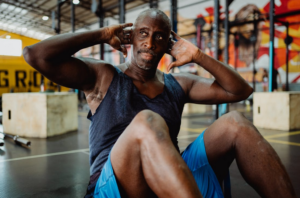 When looking for a virtual fitness trainer, the first thing you should consider is your budget. How much are you willing to spend on your fitness goals?
When looking for a virtual fitness trainer, the first thing you should consider is your budget. How much are you willing to spend on your fitness goals?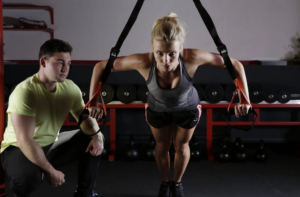 Once you have found a trainer you are interested in working with, be sure to meet with them in person (or virtually) before committing. This will allow you to get to know the trainer and see if they are a good fit for you. During your meeting, be sure to ask about the trainer’s experience, qualifications, and training style. This will help you better understand what to expect from working with the trainer. Before you decide on a trainer, compare prices and services. Some trainers may offer discounts for particular services or sign up for more extended periods.…
Once you have found a trainer you are interested in working with, be sure to meet with them in person (or virtually) before committing. This will allow you to get to know the trainer and see if they are a good fit for you. During your meeting, be sure to ask about the trainer’s experience, qualifications, and training style. This will help you better understand what to expect from working with the trainer. Before you decide on a trainer, compare prices and services. Some trainers may offer discounts for particular services or sign up for more extended periods.…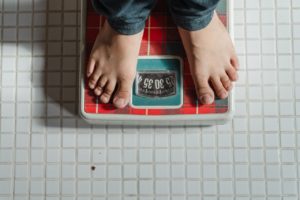 These supplements have proven to have some effects, although they are not a miracle cure and you still have to eat right. These supplements can help you, although they are not a miracle cure and weight loss will not be just a drop, but they can still help with natural weight loss. There are several manufacturers of weight-loss dietary supplements out there to choose from and choosing the ideal one for you could be confusing. You need something that you can take easily and never think it’s a job or you could eliminate interest very quickly.
These supplements have proven to have some effects, although they are not a miracle cure and you still have to eat right. These supplements can help you, although they are not a miracle cure and weight loss will not be just a drop, but they can still help with natural weight loss. There are several manufacturers of weight-loss dietary supplements out there to choose from and choosing the ideal one for you could be confusing. You need something that you can take easily and never think it’s a job or you could eliminate interest very quickly. You should try not to take supplements, as they can hurt your body for a long period. The moment you see your body in its new form, you will be determined to keep the weight off. Some weight reduction diet pills only require you to take them a couple of times a day and others require you to take them more often. This also needs to be kept in mind. If you are the type that likes to take things, you may have to take note because you might forget. This is one of the mistakes many people commit.…
You should try not to take supplements, as they can hurt your body for a long period. The moment you see your body in its new form, you will be determined to keep the weight off. Some weight reduction diet pills only require you to take them a couple of times a day and others require you to take them more often. This also needs to be kept in mind. If you are the type that likes to take things, you may have to take note because you might forget. This is one of the mistakes many people commit.… Improve Appearance
Improve Appearance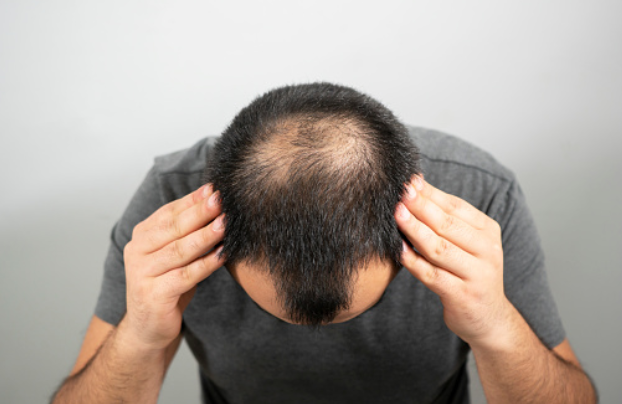
 This nation’s law should have reimbursement plans by which the lawyer can guide the sufferer in managing the long-term damage. Negligence refers to lack of care and misdiagnosis, wrong treatment, improper medicine, and individual management by the hospital. All of which could end in a disastrous future for the individual. Therefore, when such a bereavement situation occurs, the victim needs to have a legal claim of medical
This nation’s law should have reimbursement plans by which the lawyer can guide the sufferer in managing the long-term damage. Negligence refers to lack of care and misdiagnosis, wrong treatment, improper medicine, and individual management by the hospital. All of which could end in a disastrous future for the individual. Therefore, when such a bereavement situation occurs, the victim needs to have a legal claim of medical  If the victim treats a patient through a hospital, the hospital staff, administration, and management. It could be prosecuted for providing the patient with inappropriate and toxic medications and treatments. This is much more of social responsibility for the individual to go to court against medical malpractice to ensure. In the long run, all healthcare providers, hospitals, and clinics are careful to provide all patients with regular, high-quality care and treatment.
If the victim treats a patient through a hospital, the hospital staff, administration, and management. It could be prosecuted for providing the patient with inappropriate and toxic medications and treatments. This is much more of social responsibility for the individual to go to court against medical malpractice to ensure. In the long run, all healthcare providers, hospitals, and clinics are careful to provide all patients with regular, high-quality care and treatment.
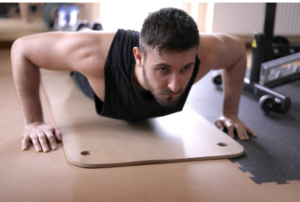 People weren’t designed for sedentary lifestyles. Sedentary
People weren’t designed for sedentary lifestyles. Sedentary  Erectile dysfunction (ED), also called impotence, is the inability to attain or maintain a hard enough erection for satisfactory completion of sex. Erectile dysfunction differs from many other health conditions that interfere with the male sexual role, such as lack of sexual desire (decreased libido) and issues with ejaculation discharge of the fluid in the penis (ed ) and orgasm/climax (erectile dysfunction), and penile curvature (Peyronie’s disease). However, these problems might also be present. ED affects about 50 percent of men age 40 and above. This report concentrates on the evaluation and treatment for erectile dysfunction.
Erectile dysfunction (ED), also called impotence, is the inability to attain or maintain a hard enough erection for satisfactory completion of sex. Erectile dysfunction differs from many other health conditions that interfere with the male sexual role, such as lack of sexual desire (decreased libido) and issues with ejaculation discharge of the fluid in the penis (ed ) and orgasm/climax (erectile dysfunction), and penile curvature (Peyronie’s disease). However, these problems might also be present. ED affects about 50 percent of men age 40 and above. This report concentrates on the evaluation and treatment for erectile dysfunction. Erectile Dysfunction (ED) changes in seriousness; a number may have an erection in any capacity, though different folks once in a while experience difficulty having a hard erection. Numerous others get an unbending erection, yet it just goes on for a brief period. Roughly 50% of men over age 40 experience the ill effects of erectile dysfunction. Simultaneously, erectile dysfunction may happen at whatever stage in life, creating erectile dysfunction increments with age.
Erectile Dysfunction (ED) changes in seriousness; a number may have an erection in any capacity, though different folks once in a while experience difficulty having a hard erection. Numerous others get an unbending erection, yet it just goes on for a brief period. Roughly 50% of men over age 40 experience the ill effects of erectile dysfunction. Simultaneously, erectile dysfunction may happen at whatever stage in life, creating erectile dysfunction increments with age.


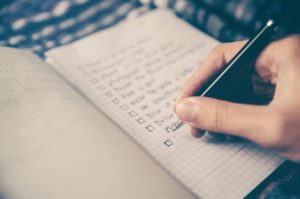 Everything starts with a goal. Once you know everything you need for your whole body, you can achieve this goal most efficiently. It should also inspire you to keep pushing instead of constantly making excuses. Getting fit is not a job you do overnight, and that means you want to be patient, focused, and focused on achieving your goals. If you are looking for tips on how to get in shape, they should include a nutritious diet and regular exercise.…
Everything starts with a goal. Once you know everything you need for your whole body, you can achieve this goal most efficiently. It should also inspire you to keep pushing instead of constantly making excuses. Getting fit is not a job you do overnight, and that means you want to be patient, focused, and focused on achieving your goals. If you are looking for tips on how to get in shape, they should include a nutritious diet and regular exercise.…

 Exercising is one of the easiest and healthiest ways to do this. You can buy smart balls, ben wa balls or kegel exercisers, but exercisers can cost a lot of money and are designed only to supplement vaginal exercisers.
Exercising is one of the easiest and healthiest ways to do this. You can buy smart balls, ben wa balls or kegel exercisers, but exercisers can cost a lot of money and are designed only to supplement vaginal exercisers. The best way to tighten your vagina is through vaginal exercises. It is, without a doubt, the best and healthiest way to do it. When women think their vaginas are getting tighter, it is getting tighter because of the vaginal exercises. The pubococcygeus muscle or PC muscle is strengthened with the exercises. It adds friction between your vagina and your lover’s penis. Aside from this, what more can you expect in doing vaginal exercises? Some women report that after doing vaginal exercises, they feel more “tighter,” experience more orgasms, and they can their vaginal muscles more, giving more pleasure to their partners.
The best way to tighten your vagina is through vaginal exercises. It is, without a doubt, the best and healthiest way to do it. When women think their vaginas are getting tighter, it is getting tighter because of the vaginal exercises. The pubococcygeus muscle or PC muscle is strengthened with the exercises. It adds friction between your vagina and your lover’s penis. Aside from this, what more can you expect in doing vaginal exercises? Some women report that after doing vaginal exercises, they feel more “tighter,” experience more orgasms, and they can their vaginal muscles more, giving more pleasure to their partners.